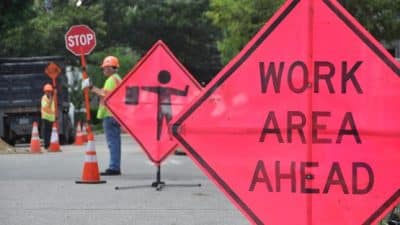
Understanding what drug use is and the dangers of drug abuse is an important preventative measure. Unfortunately, these programs often don’t continue into high school, when kids are more likely to use drugs. Teens are also more likely to understand the concept of how drug addiction can develop when the body builds up a tolerance to a substance1.
Over the last decade, a variety of local, state and federal government programs have formed to help educate teens and adults about drug abuse2. Many more programs offer assistance for those that need help with their addiction. Here are programs that are helping keep people safe and can serve as a model for other communities:
Supervised Injection Sites
In Europe and Canada, Supervised Injection Sites (SIS) have been used to provide a safe environment for recreational intravenous drug users3. Medical professionals are onsite while addicts shoot up, which does more than keep people from overdosing. It also gives the workers an opportunity to discuss treatment with addicts. Likewise, addicts can talk with medical professionals about their concerns and social programs that can help.
While there are no SIS in the U.S. at this time, policymakers in New York are attempting to create a similar program. They point to studies that show SIS programs have the potential to reduce social costs and risks involved with drug use4.
Syringe Exchange Programs
Although SIS are not used in America, Syringe Exchange Programs (SEP) have been implemented in some areas, despite a federal ban on funding such programs5. Medical experts have argued that the exchange programs help minimize the risk of an HIV outbreak, which extends far beyond recreational intravenous drug users.
In addition to providing users with clean needles and safely disposing of used syringes, program operators are able to gather contact information. They also discuss the possibility of opioid replacement therapies as a way to begin the rehabilitation process.
Substance Abuse and Mental Health Services Administration (SAMHS)
The SAMHS is a federal program that helps communities across the U.S. create prevention and intervention strategies for substance use disorders6. They focus on the connection between drug use and mental illness in order to serve a segment of the population who’s more at risk for addiction. Emphasis is put on early intervention, which has shown to have the greatest impact. Their specialized services are designed to be implemented soon after the first episode of psychosis.
The Drug Enforcement Administration’s Drug Take-Back Program
Prescription drug abuse is a growing problem in the U.S. One issue the Drug Enforcement Administration (DEA) is tackling is unused prescription drugs that are sitting around in people’s homes7. These drugs could end up in the wrong hands or be a gateway drug for kids. Together with local police departments, fire departments and pharmacies nearly 5,000 drop-off locations have been created.
The DEA notes that about 23,000 people die each year from overdoses that involve either heroine or prescription opiates. The organization also states that roughly 80% of heroine users start on prescription pills.
Gloucester Law Enforcement Policy Shift Helps Drug Addicts
Recently the Gloucester Police Department made headlines for a dramatic policy shift. Instead of arresting drug users, the department is giving them amnesty8. Drug users that turn themselves in and hand over any drugs they have will go right to a treatment program rather than jail. The goal is to reduce the rising number of fatal opioid overdoses that are occurring in the area. Policymakers in the city have realized that putting effort into helping users overcome their addiction will make a greater impact than pressing criminal charges.
Article Sources:
1 – http://deserthopetreatment.com/drug-abuse/
2 – https://www.whitehouse.gov/ondcp/federally-funded-prevention-programs
3 – https://augustafreepress.com/drug-users-not-require-state-supervision/
4 – http://www.ncbi.nlm.nih.gov/pmc/articles/PMC2376869/
5 – http://time.com/3934164/hiv-needle-exchange-program/










